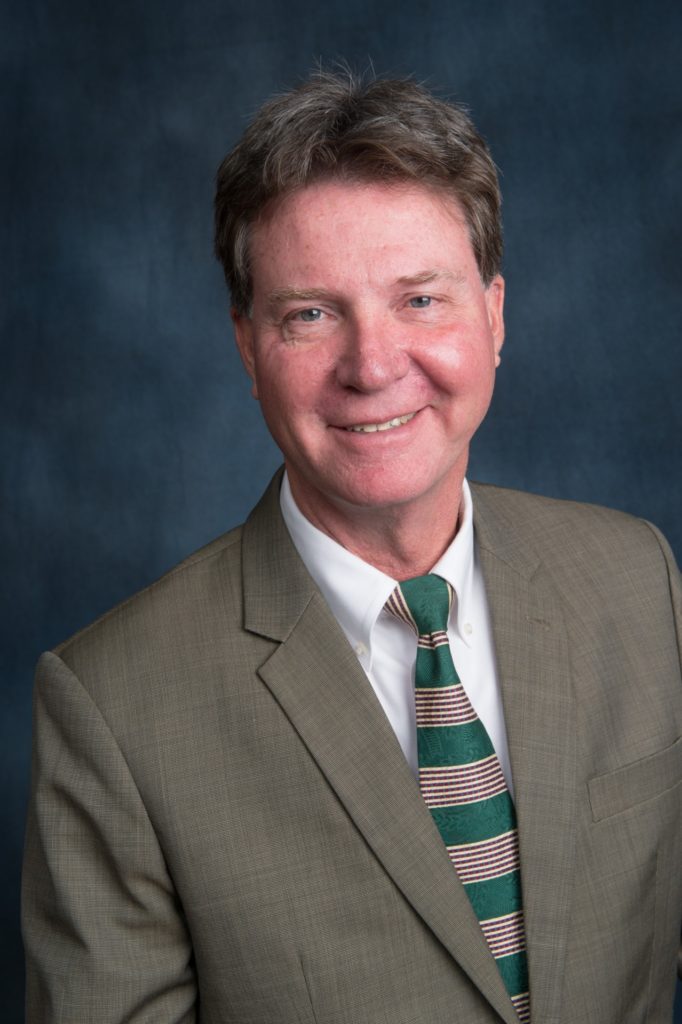Mark Hallett will retire at the end of the Fall 2021 semester after 26 years as Colorado State University’s senior director of International Student and Scholar Services.
The career that he spent helping international students and faculty can trace its roots back to aiding people in the Philippines get access to water.
As a young man working for the Peace Corps in the waning years of the Ferdinand Marcos regime, Hallett helped build water tanks and wells to bring Philippine communities the tools they needed for life and success. A decade later, when he joined CSU, he began helping the University’s international students and faculty find what they needed to thrive on campus and in Fort Collins.
As the head of ISSS, Hallett’s work often looked like paperwork: assisting with visas, I-20 forms for proof of enrollment, and more. To Hallett though, these essential processes were avenues into reaching students on a more personal level.
“In the office, there are a lot of transactional things, but they can be done in relational ways,” Hallett said.
The key, Hallett said, is to create opportunities to learn more about students’ lives, whether through a conversation in the office or through off-campus events. The latter is a proud tradition at CSU, perhaps most memorably through the weekly Sunday breakfasts hosted at the home of Jean Griswold, who came before Hallett in his role at ISSS.
During Hallett’s tenure, the activities expanded to include Football 101, a chance to familiarize international students with CSU’s most high-profile sport; Day in the Mountains, which connects newcomers to nature to help it feel accessible; and numerous cookouts and other activities at the Fort Collins International Center.
Hallett credits Griswold’s mentorship with inspiring his approach when he succeeded her.
“I basically built on what she and (previous ISSS director) Jim Graham had built,” Hallett said.

Mark Hallett, senior director of International Student and Scholar Services, Office of International Programs at CSU.
Building connections for international students to CSU, Fort Collins and their colleagues made a lasting difference in good times, but it could save lives when crises came. Hallett helped guide CSU’s international community through the attacks of Sept. 11, 2001, wars in numerous countries, natural disasters in Asia and now the COVID-19 pandemic.
At times, the coming crisis could be foreseen and planned for in advance, other times the students themselves would come to Hallett and his staff and talk about the fears they had for themselves or their families back home.
In each case, Hallett said, the staff as well as the greater campus community would rise to the demands of the situation and help students find some measure of safety and stability in their home away from home. For example, during the civil wars in Libya in the early and mid-2010s Hallett said the University community pooled knowledge and resources to keep Libyan students at CSU when government scholarships were cut off. Many stayed in on-campus housing even when they couldn’t pay for it, received food assistance and found help with the mental health troubles of being away from a home in turmoil.
For Hallett, the good and the hard times equally illustrate what he said is a central theme of his almost three decades of service at CSU: that it is “an incalculable treasure” to have students from around the world on campus, and that it’s by the entire community coming together to support them that they are then able to take Colorado State back out into the world.
In essence, it’s “utang na loob,” one of Hallett’s favorite Filipino phrases. It means “reciprocity” or “indebtedness” in English, the idea of giving out of gratitude for what has been given to you. Utang na loob has shaped much of Hallett’s 26 years at CSU, and it’s reflected in how he says he wants to be remembered by the international students he has influenced and by his fellow Rams.
“We need to support international students,” Hallett said. “That’s what I want them to think about. How do we make this place a good place for internationalization, cultural exchange and kindness?”